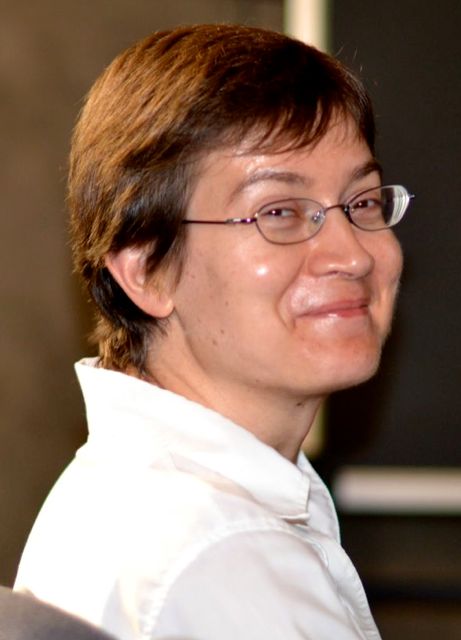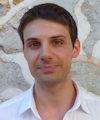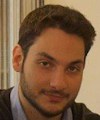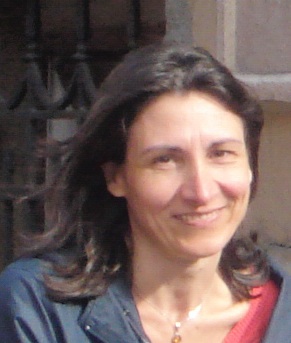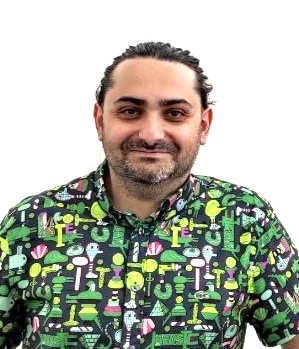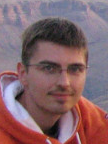Studying at the University of Verona
Here you can find information on the organisational aspects of the Programme, lecture timetables, learning activities and useful contact details for your time at the University, from enrolment to graduation.
Academic calendar
The academic calendar shows the deadlines and scheduled events that are relevant to students, teaching and technical-administrative staff of the University. Public holidays and University closures are also indicated. The academic year normally begins on 1 October each year and ends on 30 September of the following year.
Course calendar
The Academic Calendar sets out the degree programme lecture and exam timetables, as well as the relevant university closure dates..
| Period | From | To |
|---|---|---|
| I sem. | Oct 3, 2016 | Jan 31, 2017 |
| II sem. | Mar 1, 2017 | Jun 9, 2017 |
| Session | From | To |
|---|---|---|
| Sessione invernale Appelli d'esame | Feb 1, 2017 | Feb 28, 2017 |
| Sessione estiva Appelli d'esame | Jun 12, 2017 | Jul 31, 2017 |
| Sessione autunnale Appelli d'esame | Sep 1, 2017 | Sep 29, 2017 |
| Session | From | To |
|---|---|---|
| Sessione estiva Appelli di Laurea | Jul 18, 2017 | Jul 18, 2017 |
| Sessione autunnale Appelli di laurea | Nov 22, 2017 | Nov 22, 2017 |
| Sessione invernale Appelli di laurea | Mar 20, 2018 | Mar 20, 2018 |
| Period | From | To |
|---|---|---|
| Festa di Ognissanti | Nov 1, 2016 | Nov 1, 2016 |
| Festa dell'Immacolata Concezione | Dec 8, 2016 | Dec 8, 2016 |
| Vacanze di Natale | Dec 23, 2016 | Jan 8, 2017 |
| Vacanze di Pasqua | Apr 14, 2017 | Apr 18, 2017 |
| Anniversario della Liberazione | Apr 25, 2017 | Apr 25, 2017 |
| Festa del Lavoro | May 1, 2017 | May 1, 2017 |
| Festa della Repubblica | Jun 2, 2017 | Jun 2, 2017 |
| Vacanze estive | Aug 8, 2017 | Aug 20, 2017 |
Exam calendar
Exam dates and rounds are managed by the relevant Science and Engineering Teaching and Student Services Unit.
To view all the exam sessions available, please use the Exam dashboard on ESSE3.
If you forgot your login details or have problems logging in, please contact the relevant IT HelpDesk, or check the login details recovery web page.
Should you have any doubts or questions, please check the Enrollment FAQs
Academic staff
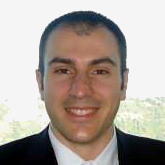
Bloisi Domenico Daniele
 domenico.bloisi@univr.it
domenico.bloisi@univr.it
 maurizio.boscaini@univr.it
maurizio.boscaini@univr.it
 federico.busato@univr.it
federico.busato@univr.it
 mila.dallapreda@univr.it
mila.dallapreda@univr.it
Folloni Valentina
 bruno.gobbi@univr.it
bruno.gobbi@univr.it
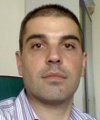
Mogavero Fabio
 fabio.mogavero@univr.it
fabio.mogavero@univr.it
 claudio.tomazzoli@univr.it
claudio.tomazzoli@univr.it
Ugolini Simone
 simone.ugolini@univr.it
simone.ugolini@univr.it
Study Plan
The Study Plan includes all modules, teaching and learning activities that each student will need to undertake during their time at the University.
Please select your Study Plan based on your enrollment year.
1° Year
| Modules | Credits | TAF | SSD |
|---|
2° Year activated in the A.Y. 2017/2018
| Modules | Credits | TAF | SSD |
|---|
3° Year activated in the A.Y. 2018/2019
| Modules | Credits | TAF | SSD |
|---|
| Modules | Credits | TAF | SSD |
|---|
| Modules | Credits | TAF | SSD |
|---|
| Modules | Credits | TAF | SSD |
|---|
Legend | Type of training activity (TTA)
TAF (Type of Educational Activity) All courses and activities are classified into different types of educational activities, indicated by a letter.
Mathematical analysis 2 (2017/2018)
Teaching code
4S00031
Teacher
Coordinator
Credits
6
Language
Italian
Scientific Disciplinary Sector (SSD)
MAT/05 - MATHEMATICAL ANALYSIS
Period
I sem. dal Oct 2, 2017 al Jan 31, 2018.
Learning outcomes
The course aims to introduce the fundamental notions of differential and integral calculus in more variables. Some ordinary differential equations will be studied.
At the end of the course students are expected to know the language and the notions introduced. Moreover they should be able to rigorously use such notions for the solution of the proposed exercises, explaining their answers with precise references to theoretical results dealt with during the course, if necessary.
Program
1) Ordinary differential equations (ODE). General integral of an ODE. Cauchy problems. Separable variable differential equations. First and second-order linear differential equations.
2) Differential calculus for functions of many variables. Graphs and level sets. Limits and continuity for functions of many variables. Topology in R^n. Partial derivatives. Unconstrained and constrained optimization.
3) Integral calculus in many variables: line integrals of a scalar field, double and triple integrals. Vector fields. Line integrals of a vector field.
4) Area of a surface and surface integrals.
| Author | Title | Publishing house | Year | ISBN | Notes |
|---|---|---|---|---|---|
| M. Bramanti, C. D. Pagani, S. Salsa | Analisi Matematica 2 | Zanichelli | 2009 | 978-88-08-12281-0 |
Examination Methods
The final exam is written and must be completed in 3 hours. Oral exams will not take place. The exam paper consists of open-ended exercises. The total of the marks of the exam paper is 32. Any topic dealt with during the lectures can be examined. Students are not allowed to use books, notes or electronic devices during the exam. The mark of any exercise will take into consideration not only the correctness of the results, but also the method adopted for the solution and the precise references to theoretical results (e.g. theorems) taught during the lectures. The pass mark for the exam is 18.
A midterm exam will take place during the midterm week, according to the Computer Science Department's calendar. Students who take part to the midterm (whose total of the marks is 16) can decide to solve only the second part of the exam in only one of the two dates during the exam session of February 2018. The total of the marks of the second part is 16. The final mark is given by the sum of the marks of the midterm and the second part.
Type D and Type F activities
Modules not yet included
Career prospects
Module/Programme news
News for students
There you will find information, resources and services useful during your time at the University (Student’s exam record, your study plan on ESSE3, Distance Learning courses, university email account, office forms, administrative procedures, etc.). You can log into MyUnivr with your GIA login details: only in this way will you be able to receive notification of all the notices from your teachers and your secretariat via email and soon also via the Univr app.
Graduation
List of theses and work experience proposals
| theses proposals | Research area |
|---|---|
| Analisi e percezione dei segnali biometrici per l'interazione con robot | AI, Robotics & Automatic Control - AI, Robotics & Automatic Control |
| Integrazione del simulatore del robot Nao con Oculus Rift | AI, Robotics & Automatic Control - AI, Robotics & Automatic Control |
| Domain Adaptation | Computer Science and Informatics: Informatics and information systems, computer science, scientific computing, intelligent systems - Computer graphics, computer vision, multi media, computer games |
| Domain Adaptation | Computer Science and Informatics: Informatics and information systems, computer science, scientific computing, intelligent systems - Machine learning, statistical data processing and applications using signal processing (e.g. speech, image, video) |
| BS or MS theses in automated reasoning | Computing Methodologies - ARTIFICIAL INTELLIGENCE |
| Domain Adaptation | Computing Methodologies - IMAGE PROCESSING AND COMPUTER VISION |
| Domain Adaptation | Computing methodologies - Machine learning |
| Dati geografici | Information Systems - INFORMATION SYSTEMS APPLICATIONS |
| Analisi e percezione dei segnali biometrici per l'interazione con robot | Robotics - Robotics |
| Integrazione del simulatore del robot Nao con Oculus Rift | Robotics - Robotics |
| BS or MS theses in automated reasoning | Theory of computation - Logic |
| BS or MS theses in automated reasoning | Theory of computation - Semantics and reasoning |
| Proposte di tesi/collaborazione/stage in Intelligenza Artificiale Applicata | Various topics |
| Proposte di Tesi/Stage/Progetto nell'ambito dell'analisi dei dati | Various topics |
Attendance
As stated in the Teaching Regulations for the A.Y. 2022/2023, attendance at the course of study is not mandatory.
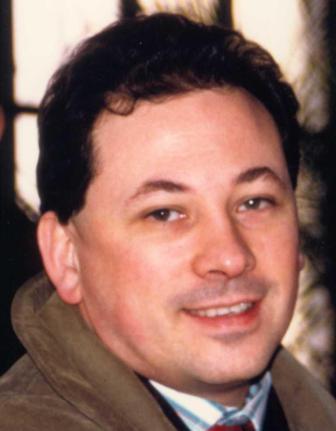
 +39 045 802 7980
+39 045 802 7980

